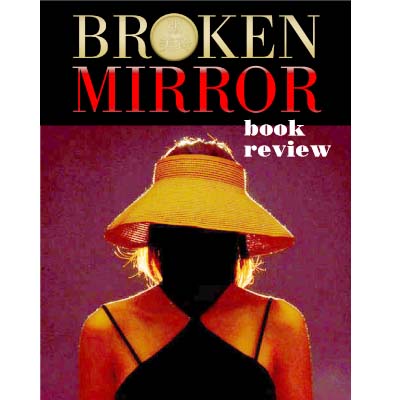According to legend, a child enters the world with a mirror that holds his soul, and this mirror reflects not only his image but also the love shaping his soul.
Should the mirror break, the child’s soul will be marred forever.
This metaphor forms the basis of Broken Mirror: Inside a Chinese Marriage, the story of a Chinese Filipina’s life journey marred by violence, pain and cruel treatment.
Aurora Teo Mei Ling’s painful account sheds light on the travails and injustices experienced by generations of Chinese-Filipinas. Having lost her mother at two years old, Aurora felt abandoned during her growing up years.
Left to the care of her stepmother in Hong Kong while her father continued his philandering ways, she experienced a childhood bereft of toys, food and nice clothes. Eventually, her father brought her to the Philippines, where she met relatives and half-siblings, including Diko, who seemingly had a hand in her mother’s death.
Aurora’s misfortunes followed her to the Philippines, from the tragic death of her stepmother to her father’s junk shop – and home – burning down.
Her adolescent years only continued in a downward spiral: She got molested by her cousin, was abused by father’s new wife Ateng, and even lost her virginity carelessly, all of which shattered her mirror even more. Without a good role model to follow, she had a series of affairs, including an affair with her nephew Philip and another with her boss, a Chinese tycoon in his 60s, who abused his position to get sex.
Eventually, Aurora married Roberto Teo Kai Lung, a naturalized Chinese immigrant, after he proposed just weeks into their courtship. They started out as a loving couple sharing the same dream of securing their family’s future. They built their own junkyard business, made sure to have fun dates every week, and started to plan having children.
But “happily ever after” was still far from Aurora’s reach: Her family lost everything after an ex-employee set their junkyard business on fire, Roberto’s predilection for alcohol only worsened, and she learned about Vivienne Go, her husband’s business associate and mistress who eventually bore Roberto two sons.
As a traditional Chinese wife, Aurora tried to bottle up her emotions in spite of Roberto’s failure to be a loving and committed husband to her. She did not make a fuss, even when Roberto was not around when she gave birth to twins or when Roberto asked for her help when Vivienne was detained at the Department of Foreign Affairs’ holding cell.
In spite of Roberto’s continuous verbal abuse and infidelity, Aurora consented to giving him all that he wanted and even pretended that everything was still okay for the sake of her family, turning instead to wine, shopping sprees and Valium to calm her nerves.
Eventually, Roberto’s physical abuse took its toll on Aurora – and this made her decide to separate from Roberto for good. After a series of stops and starts (owing to Roberto’s continuous threats of starting a new family or not leaving any inheritance to his children), she eventually became firm in her decision to permanently separate from Roberto.
By telling her story after decades of silence, Aurora has embarked on her own catharsis – her first step toward healing. And while Broken Mirror: Inside a Chinese Marriage is her personal account, the book speaks to hundreds of Chinese.Filipinas who have submitted to societal expectations and endured countless sacrifices for their families.
It tells the story of a young woman who eventually learned to love herself, pick up the shattered pieces, and reclaim her independence. While it took her decades to finally take action toward changing her destiny, Aurora is definitely on her way toward fusing the pieces of her broken mirror together.
And as feminine empowerment continues to take root in today’s society, Chinese Filipinas should likewise take inspiration from Broken Mirror: Inside a Chinese Marriage to break traditional norms and free themselves from the chains of oppressive marriages, to carve their own destiny.
Categories
Broken Mirror, a book review
